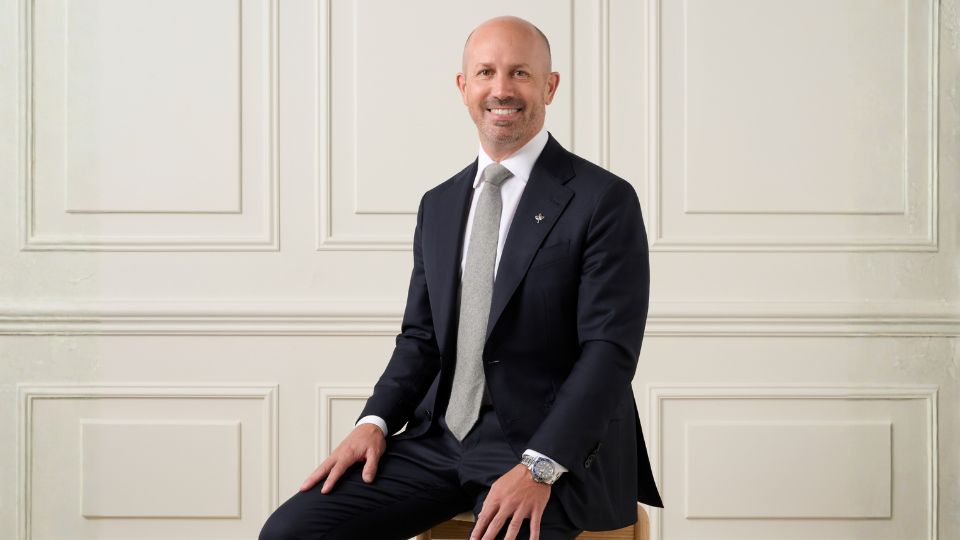For an industry that deals in the business of homes, few causes hit closer to home than homelessness. It’s a reality that Andrew McCann, CEO of Jellis Craig, has come to see as not only a social issue but one that sits uncomfortably close to the property profession itself.
Through the Jellis Craig Foundation and partnerships such as A Home for All, Andrew and his team are working to shift the conversation from transactions to something more human: ensuring everyone has a place to call home.
The Jellis Craig Foundation, established more than a decade ago, is a tangible expression of that belief.
Since its inception, the foundation has raised close to $4 million, funded entirely through voluntary contributions from sales commissions.
Governed by an internal board of staff, the foundation directs those funds toward community organisations addressing homelessness, domestic violence and mental health.
Among its key partners are the Lighthouse Foundation, McAuley Community Services for Women, and The Big Umbrella, all of which provide practical, on-the-ground support to people experiencing crisis.
Staff across Jellis Craig’s offices regularly roll up their sleeves to volunteer, serving food on the streets of Melbourne, preparing meals, or even helping renovate facilities and purchase vehicles to keep these vital programs running.
For Andrew, the work has changed how he sees homelessness itself and he believes that public understanding of the issue remains far too narrow.
“More than ninety per cent of people experiencing homelessness aren’t sleeping rough,” he explains.
“They’re sleeping in their cars, on friends’ couches, or moving between temporary places. It’s a much bigger issue than most people realise.”
That misunderstanding, he adds, is compounded by stigma.
“Homelessness is often seen as a result of poor life choices, when in reality it can stem from so many factors including domestic violence, job loss, relationship breakdowns, or the cost of living. It’s not a single-issue problem, and it’s not one that anyone chooses.”
That awareness is at the heart of why Andrew feels compelled to keep the conversation alive.
He believes the first step toward meaningful change is education – both within the real estate industry and in the wider community.
“If we can start to break down the stereotypes and have more empathy, we’ll be in a better position to do something about it,” he says.
On World Homelessness Day, Andrew decided to take part in a simple but confronting exercise: sleeping in his car for a night.
“It wasn’t a hard decision, but it was uncomfortable,” he says.
“Even with a decent car on a mild night, it’s tough to get proper rest. You wake up sore, tired and less able to function. It gave me perspective and gratitude – and a small understanding of what people go through when they don’t have the security of a home.”
That experience only reinforced his determination to make social impact part of Jellis Craig’s DNA.
Within the business, conversations about community responsibility are regular and intentional – as they should be throughout the real estate community, he says.
“We talk about our duty not just to operate within communities, but to contribute to them … We’re fortunate to do what we do, and that comes with a responsibility to give back.”
Participation can take many forms – financial, practical, or simply through awareness – but the goal is to ensure that giving back becomes part of what defines the company culture.
When asked whether the property sector bears some responsibility for the housing affordability crisis, Andrew’s response is measured but firm.
“Property ownership has always been aspirational in Australia, and there’s nothing wrong with that,” he says.
“But we can use our position to advocate for change and push for solutions.”
Those solutions, he believes, require collaboration between the real estate industry, developers and government.
“We need better planning, better governance and more housing; particularly social and affordable housing. None of that happens unless everyone sits at the same table.”
He points to A Home for All as an example of how collective effort can create momentum.
The initiative brings together businesses, property professionals and government to raise awareness and drive policy discussion around housing insecurity.
“The more people involved, the faster the solutions will come,” Andrew says.
“Real estate can’t solve this on its own, but we can be a strong voice and a willing partner.”
Still, he’s realistic about the road ahead.
“It would be naïve to expect immediate results,” he admits.
“What’s important now is clarity; being honest about the scale of the problem, shining a light on it, and making sure people understand it isn’t going away. From there, we can start to build practical solutions together.”
For Andrew, championing this cause has become more than corporate social responsibility; it has changed how he sees leadership itself.
He says the experience has given him perspective on what matters beyond the commercial metrics that often define success in real estate.
The more he’s learned about housing insecurity and the people affected by it, the more he’s come to view compassion and contribution as essential qualities of modern leadership.
“As I’ve got older, I’ve become more aware of how fortunate we are and how important it is to give back,” he says.
“If we don’t address these issues, cost of living, affordable housing, homelessness, then nothing improves. I want to see things get better, and if we can contribute even in a small way, I’d be incredibly proud of that.”
He also believes the profession as a whole could benefit from that same perspective shift.
For all the focus on competition and performance, he says, the industry’s long-term strength lies in empathy and integrity.
Real estate, at its core, is about people and the security of having a place to belong.

